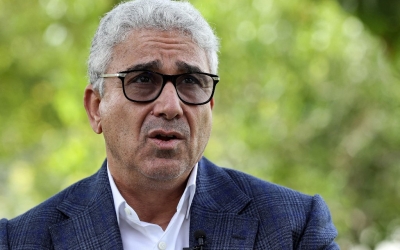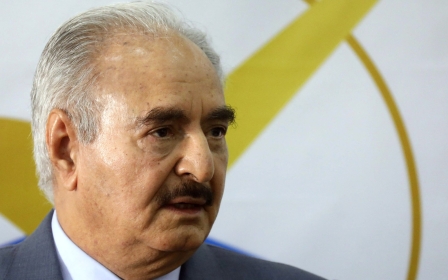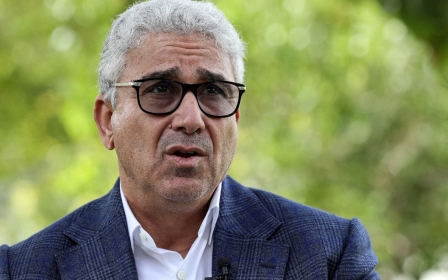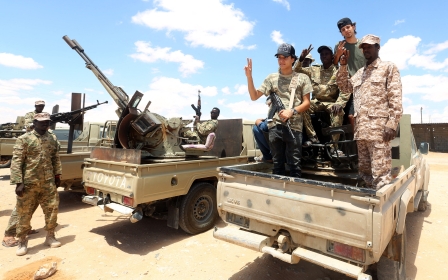Libya: Rival prime minister quits Tripoli hours after attempt to enter capital
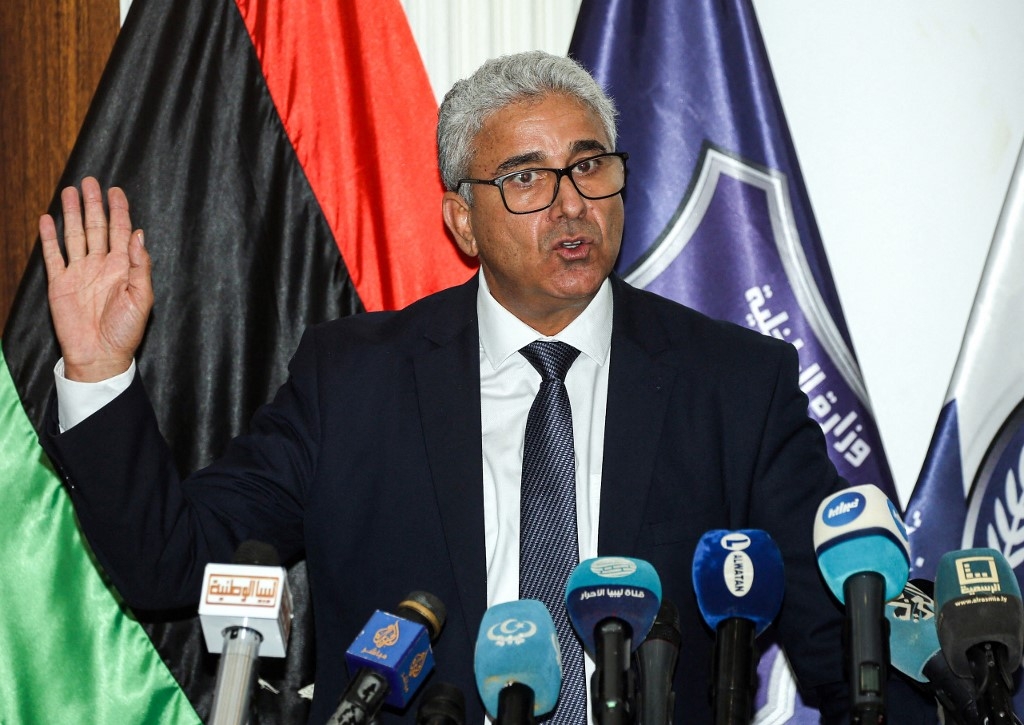
Fathi Bashagha, the eastern parliament-appointed prime minister, has left Libya's capital hours after his attempt to enter Tripoli led to clashes between rival factions, his office said on Tuesday.
Fighting had erupted after Bashagha arrived to try to take control from the rival unity government which has refused to cede power.
The sound of heavy weapons and automatic gunfire burst across the capital on Tuesday morning, as schools were cancelled and the normally heavy rush hour traffic was sparse.
However, in central areas, away from the clashes on the northeast side of Tripoli, there was little evidence of military activity with the government of Bashagha's rival Abdulhamid al-Dbeibah still in apparent control.
Bashagha had entered Tripoli overnight accompanied by allied fighters in the hope of taking over the government but was quickly met by opposition from forces aligned with Dbeibah, who was appointed through a UN-backed process last year.
New MEE newsletter: Jerusalem Dispatch
Sign up to get the latest insights and analysis on Israel-Palestine, alongside Turkey Unpacked and other MEE newsletters
Bashagha's office had released a statement saying his government would carry out its duties from inside the capital but later said he and accompanying ministers would depart to prevent civilian deaths.
Dbeibah's government was tasked with leading Libya to elections scheduled for last December, but those were indefinitely postponed and his political opponents argue that his mandate has now finished.
In February, the parliament in Tobruk designated former interior minister Bashagha as prime minister, but he has failed to oust Dbeibah, who has said repeatedly he will only cede power to an elected government.
Haftar backing
Tuesday's fighting raised fears of a return to the chaos that has reigned since a Nato-backed revolt in 2011 toppled long-time leader Muammar Gaddafi, and an all-out conflict that gripped the capital in 2019-20.
In March, pro-Bashagha armed groups had already deployed on the edges of the capital, raising fears of a confrontation that would end a fragile ceasefire in place since October 2020.
Bashagha is backed by Khalifa Haftar, the eastern-based commander who led a failed bid to seize Tripoli in 2019-20, and who maintains control of several key oil installations.
Libya plunged into violent lawlessness in 2011 following the Nato-backed revolt that toppled Gaddafi.
Armed groups have vied for control of territory as a string of interim governments have come and gone.
Many such groups have been integrated into the state, partly in order to access a share of the country's vast oil wealth, and human rights organisations have often accused them of abuses.
The creation of two governments echoes Libya's troubled period of rival administrations between 2014 and 2021, when the oil-rich nation was ripped apart by civil war.
Oil production, the country's main source of income, has again been hit by political rifts with a wave of forced closures of oil terminals by groups aligned with the eastern camp, who want power transferred to Bashagha.
Middle East Eye delivers independent and unrivalled coverage and analysis of the Middle East, North Africa and beyond. To learn more about republishing this content and the associated fees, please fill out this form. More about MEE can be found here.


